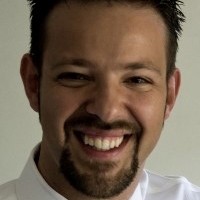

Professor Vincenzo Tamma
Biography
I am the Founding Director of the Quantum Science and Technology Hub (QSTH).
I received my Masters degree in physics from University of Bari in 2006 (graduating Summa cum Laude and earning the BNC Research Award for my thesis research).
I received a Ph.D. in physics from the University of Bari and in Applied Physics from the University of Maryland Baltimore County in 2010 under the International Cooperation Program Award awarded by the Italian Ministry of Research (Ph.D. advisor, Prof. Yanhua Shih).
My research was recognized with the “Giampietro Puppi Award” for the best Ph.D. thesis in Physics and Astrophysics in Italy in the academic years 2007-2009.
After a one-year postdoctoral fellowship issued by the U.S. Army Research Laboratory, I moved as a group leader and lecturer to the Institute of Quantum Physics at Ulm University, Germany directed by Prof. Wolfgang Schleich, before joining the University of Portsmouth in 2016.
Research interests
My research aims at achieving a deeper understanding of the fundamental physics at the interplay between quantum physics, quantum information, complexity theory, atomic physics and general relativity, as well as at boosting the real-world implementation of quantum-enhanced technologies for applications in quantum computation, quantum communication, simulation of complex quantum systems, high-precision sensing and imaging.
I have given > 80 invited lectures at prestigious conferences and institutes across Europe, North America and Asia, including MIT, U.S. National Institute of Standards and Technology, University of Maryland, and Oxford University and numerous worldwide extended academic visits, including US Department of Defence labs. I have also organised international workshops in the areas of quantum sensing and quantum imaging.
As an example, the research in my group on multi-photon-correlation interferometry has been triggering experiments worldwide and has boosted novel approaches to quantum computing and quantum sensing with available experimental resources. Our discovery of a novel thermal-light interference effect and its application for remote sensing has triggered experiments in the United States, Italy and South Korea. Within the QUANTUS collaboration, the first experimental realisation of Bose-Einstein-condensate interference in microgravity paved the way to the first quantum tests of general relativity in space.
Research outputs
2026
Ultimate quantum sensitivity in the 3D relative localisation of two single-photon emitters via two-photon interference
Maggio, L., Tamma, V.
23 Jan 2026, In: The European Physical Journal Plus. 141, 20p., 66
Research output: Article
2025
Multiparameter quantum metrology at Heisenberg scaling for an arbitrary two-channel linear interferometer with squeezed light
Rai, A., Triggiani, D., Facchi, P., Tamma, V.
1 Dec 2025, In: Physical Review A. 112, 10p., 062401
Research output: Article
Quantum-limited estimation of the frequency shift between two interfering photons by time sampling of their quantum beats
Maggio, L., Triggiani, D., Facchi, P., Tamma, V.
7 Oct 2025, In: The European Physical Journal Plus. 140, 12p., 954
Research output: Article
Simultaneous estimation of three parameters with Heisenberg scaling sensitivity in a two-channel optical network
Rai, A., Triggiani, D., Facchi, P., Tamma, V.
9 Sep 2025, In: The European Physical Journal Plus. 140, 12p., 858
Research output: Article
Prostate MR image segmentation using a multi-stage network approach
Jacobson, L. E. O., Bader-El-Den, M., Maurya, L., Hopgood, A., Tamma, V., Masum, S., Prendergast, D., Osborn, P.
5 Sep 2025, In: International Urology and Nephrology
Research output: Article
Quantum beat of two single photons in the transverse momentum space
Guo, B., Chen, Z., Maggio, L., Wu, W., Liu, S., Tamma, V., Fan, J.
22 Jul 2025, In: Physical Review Applied. 112, 12p., 013719
Research output: Article
Heisenberg-scaling precision in the estimation of two parameters in a Mach-Zehnder interferometer
Rai, A., Triggiani, D., Facchi, P., Tamma, V.
5 Jun 2025, In: Physical Review A. 111, 13p., 062408
Research output: Article
Superresolution imaging of two incoherent sources via two-photon interference sampling measurements in the transverse momenta
Muratore, S., Triggiani, D., Tamma, V.
13 May 2025, In: Physical Review Applied. 23, 10p., 054033
Research output: Article
Momentum-entangled two-photon interference for quantum-limited transverse-displacement estimation
Triggiani, D., Tamma, V.
7 Mar 2025, In: Physical Review A. 111, 3, 12p., 032605
Research output: Article
Multi-parameter estimation of the state of two interfering photonic qubits
Maggio, L., Triggiani, D., Facchi, P., Tamma, V.
10 Feb 2025, In: Physica Scripta. 100, 3, 12p., 035106
Research output: Article
